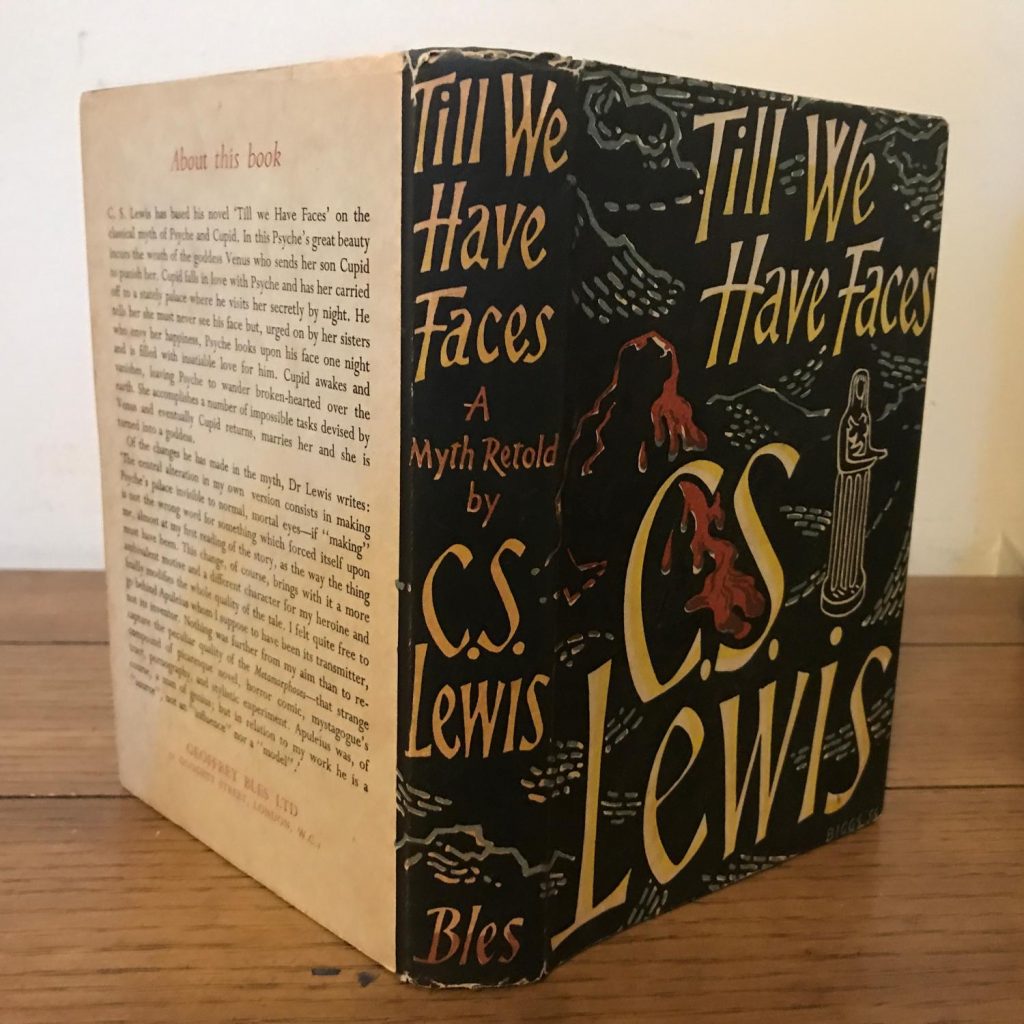
The Blurb (from Goodreads):
In this timeless tale of two mortal princesses- one beautiful and one unattractive- C.S. Lewis reworks the classical myth of Cupid and Psyche into an enduring piece of contemporary fiction. This is the story of Orual, Psyche's embittered and ugly older sister, who possessively and harmfully loves Psyche. Much to Orual's frustration, Psyche is loved by Cupid, the god of love himself, setting the troubled Orual on a path of moral development.
Set against the backdrop of Glome, a barbaric, pre-Christian world, the struggles between sacred and profane love are illuminated as Orual learns that we cannot understand the intent of the gods "till we have faces" and sincerity in our souls and selves.
My Thoughts:
When I was a little girl, I spent many a long summer holiday with my great-aunts in the seaside town of Merewether, about an hour's drive north of my hometown of Sydney.
I remember one year, when I was about twelve, lying on the floor in their living-room and looking through the bookshelves in search of something to read. My eye fell upon a novel called Till We Have Faces: A Myth Retold by C.S. Lewis, and I grabbed it eagerly. I loved the Narnia books - they were my all-time favourite books - and so I confidently expected I would love this book too.
The very first line both startled me and intrigued me:
I am old now and have not much to fear from the anger of gods.
It was clear at once this was not going to be a tale set in the magical, funny, wondrous world of Narnia, but something much darker and more grown-up. With a little shiver of anticipation, I lay down behind my great-aunt's green velvet wingchair and gave myself over to the story, the first adult book I ever read.
Till We Have Faces was Lewis's last book, published in 1956, the year that he married Joy Davidman, the American poet and writer whose tragic death in 1960 was immortalized in the movie Shadowlands with Anthony Hopkins and Debra Winger. It is believed that Joy inspired Orual, the central character in Till We Have Faces.
The book is a retelling of the ancient Greek myth of ‘Cupid and Psyche’. I was not familiar with the myth when I read the book, but understood it easily, possibly because of the strong echoes the story has with that of the ‘Beauty and the Beast’ fairytale.
In brief, the myth tells the story of Psyche, who wed Cupid, the God of Love; he gave her everything a woman could want except the sight of his own face. Her jealous elder sisters convinced her to take a candle and shine it upon her husband's face while he slept. Psyche did so, but a drop of hot wax fell on Cupid's face and woke him. Angry and disappointed, he cast her out and she had to undertake a set of seemingly impossible tasks before she could win him back.
Lewis said that the Cupid and Psyche myth had haunted him all his life. He tried to write it in poetic form, and as a play, before at last writing it from the point of view of the jealous older sister, Orual.
Originally the manuscript was titled Bareface, with an interplay of multiple meanings: Orual's facial deformity, which she hides with a mask; Psyche's mortal beauty; and the invisible god's Cupid and Aphrodite, who are supposedly the most beautiful of all. However, Lewis's editor rejected this title, thinking it sounded like a Western, and so Lewis re-named it after a line from the book in which Orual says, 'How can [the gods] meet us face to face till we have faces?'
When I first read this book, at the age of twelve, I don't think I understood what C.S. Lewis meant by this line. I do know that when I read it – and recognized it as the title and so having some kind of special significance – it stirred all sorts of new thoughts and feelings in me. I dimly realized that Orual could only grasp the truth about the gods – and so understand the meaning of the universe – once she had realized the truth about herself.
Here is the whole quote:
Lightly men talk of saying what they mean... When the time comes to you at which you will be forced at last to utter the speech which has lain at the centre of your soul for years, which you have, all that time, idiot-like, been saying over and over, you'll not talk about joy of words. I saw well why the gods do not speak openly, nor let us answer. Till that need can be dug out of us, why should they hear the babble that we think we mean? How can they meet us face to face till we have faces?
I was puzzled and moved and enthralled by this passage, and bookmarked it in my great-aunt's book with a frangipani flower that had fallen from the tree in their garden. That flower, now brown and withered and without fragrance, still marks the page.
With this book, C.S Lewis somehow taught me that stories can contain in them some kind of truth that cannot always be easily expressed, or understood with the intellect alone. He also gave me a deep and abiding love of stories that retell older stories, and find new truths hidden within the old.

